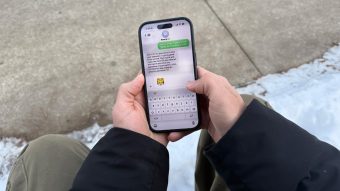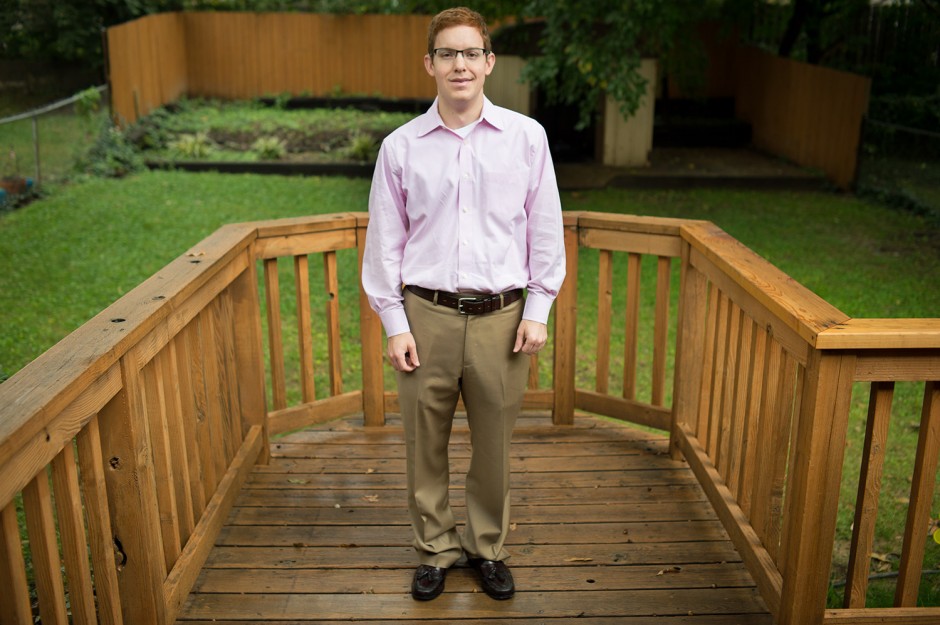
May graduate Max Murch never let a disability hinder him from pursuing his dream of becoming a project designer. As a self-motivated student, he found ways to work with being deaf. He regularly sought assistance outside the classroom with a tutor, and he used an interpreter if communication with others became difficult. When it came time to take exams or to make phone calls, he was in the MU Disability Center up to twice a week for help.
Since graduating with a degree in general studies, Murch has been working full time at a real estate commercial firm as the project designer he always wanted to be. He says the experience might not have been possible without the help of the Disability Center.
“The Disability Center helped me prepare for the real world by grasping how important it is to communicate with people, whether I’d sign or talk, text, etc.,” Murch says.
What’s in a Name
Formerly MU Disability Services, the Disability Center eliminated the word “service” from its name June 1.
“The idea of services has always rankled me,” says Barbara Hammer, the director of the Disability Center. “We’re not a place where people have their disabilities serviced.”
When she became director in 2007, Hammer made it a goal to alter the way the center is seen. She pointed out that the connotation of “services” perpetuated a medical image of disabilities. Before the change, students and faculty were surveyed about whether the word “disability” should be in the title of the center. A majority of those surveyed said yes, so when the name of the center was modified, it retained "disability" but removed “services.”
Getting Help
In the 2012–13 academic year, the Disability Center registered 1,057 students with disabilities and 78 students with temporary injuries, such as a broken arm. Each year, about 3 percent of the total Mizzou student body registers with the center. Most registered students have disabilities that are not readily apparent, Hammer says. They may have processing challenges, physical difficulties or sensory problems. Students often need help with exams, whether that means more time or a quieter environment. Some returning veterans use the office as a silent space where they can work, secluded from sharp, quick noises, such as the squeak of chalk on a chalkboard or the snap of pencil breaking.
The office provides a variety of accommodations, including sign language interpreting, captioning services and assistance with note-taking. The Disability Center works with the Adaptive Computing Technology center to provide e-text with reading software. Staff members also educate the Mizzou community, reduce barriers, guide faculty and facilitate classroom learning for students with disabilities.
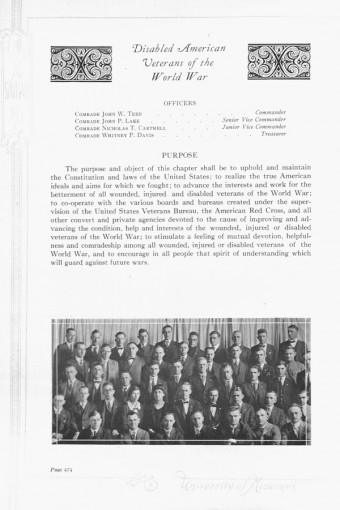
An Accessible Campus
MU has been a pioneer in accessibility since World War I. The Disabled American Veterans of the World War was the first campus organization dedicated to helping students with disabilities. Established in 1923, the organization sought to advance the interests and education of students who had been wounded or injured in the Great War.
In 1959, John McGowan, a professor of education at MU, wrote a proposal for a $1 million grant to renovate buildings on campus and make them accessible. Automatic doors, ramps, lower curbs and elevators were added, making MU one of the first universities in the nation to be maneuverable for people with physical disabilities. This designation was made 10 years before a federal law required accessibility programs.
After renovations were made, an influx of students with disabilities applied for admission at MU. The office that oversaw these students, Services for Handicapped Students, was created in 1962. Staff required admitted students to be responsible for their own attendants and to be self-motivated in filling out the paperwork necessary to access accommodations. Students also were advised to create class schedules that would allow for multiple classes in the same building, an hour for lunch and time for the use of a modified bus.
Services for Handicapped Students operated this way for several decades, as MU continued to make strides in the area of accessibility. In 1971, the university was one of eight in the nation fully equipped to enroll students with disabilities. In the late ‘80s, the Access Office, as it was then known, re-located to Brady Commons. The office became known as Disability Services in 1996.
Office Obstacles
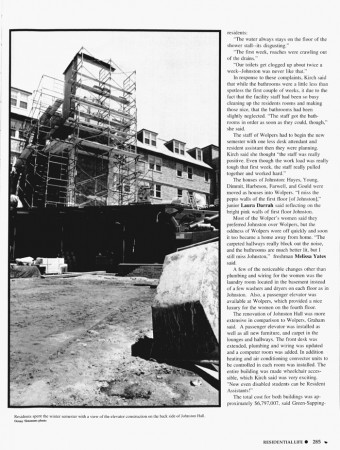
George Bush signed the Americans with Disability Act into law July 26, 1990. At the time, Congress found that more than 43,000 Americans were discriminated against because of physical or mental disabilities. The governing body declared that the new law’s purpose was to end discrimination against people with disabilities and to provide enforceable standards in addressing discrimination. Despite having been at the forefront in accessibility in the ’60s and ’70s, MU struggled to conform to the new law and comply with new, stricter accessibility requirements.
Five years after the passage of the ADA, the Association for Higher Education and Disability (AHEAD) found noncompliance with the act at MU. A major criticism was that students were responsible for negotiating for the accommodations they needed.
While AHEAD filed a complaint, Services for Independent Living, an agency serving Columbia-area residents with disabilities, threatened to report the university's noncompliance with the ADA to the U.S. Justice Department, citing a shortage of staff, space and resources. Since the problems were resolved, in 1997, the office has never again received compliance-violation complaints.
Refresh and Renew
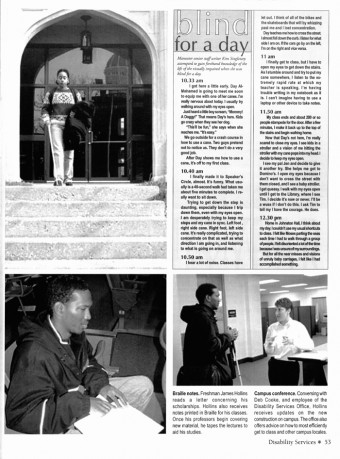
Hammer has always stressed to her staff that their work is about making students' and faculty members' lives simpler. “The goal is to put quality of interaction over quantity" of students helped, she says. “We don’t want to put students through a lot of hoops.”
To help students, the Disability Center has a renewed focus on campus access, education, disability-awareness programing and scholarships. It has eliminated a lot of paperwork, and staff members conduct mostly conversational interviews with the students, asking students what barriers and needs they have.
“We want to get to know [students],” Hammer says. Up next for the office is creating a series of brown-bag lectures and workshops for faculty on a variety of topics; more than half of faculty members who responded to a Disability Center survey expressed interest in them. The center also plans to develop an online request form for alternative formats in the coming year.
The center continues to evolve, and students are on board.
“I think the change from ‘services’ to ‘center’ sounds like a better word,” Max says. “You can’t be afraid to communicate to people with a disability. They’re just like the rest of us, except with some limitations of some kind.”
Tigers can contact the Disability Center to register for accommodations, get scholarship information or find out how to create a more inclusive and accessible learning environment. Mizzou hosts Celebrate Ability Week Oct. 13-17.

